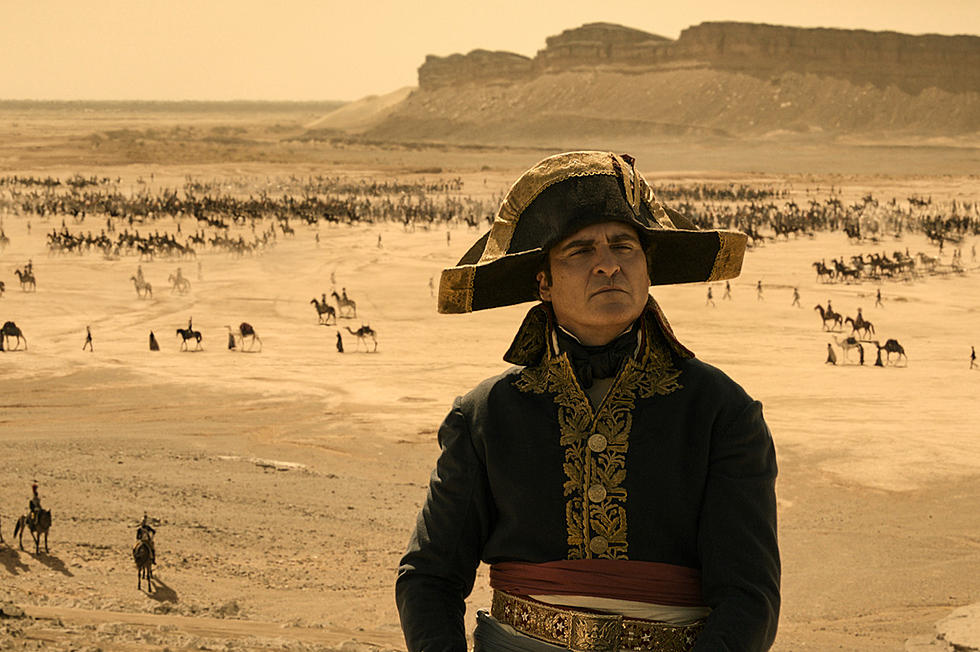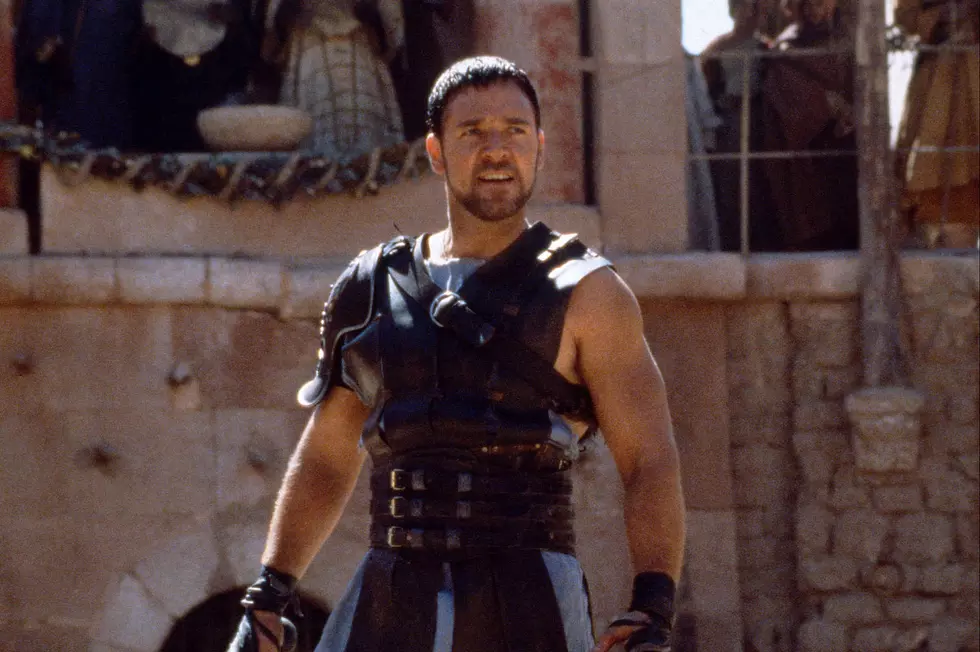
‘Exodus: Gods and Kings’ Review: Oy Gevalt…
Oy gevalt.
‘Exodus: Gods and Kings’ tells the story of Passover, when Jewish slaves, according to the Bible, “were thrust out of Egypt and could not tarry” and therefore didn’t have time to let their bread rise. So as they fled, they ate—and Jews today still eat—matzo, unleavened bread.
If only a burning bush had appeared to Ridley Scott and told him not to tarry. You could comfortably bake several loaves of bread—plus a cake or two—in the time it takes to get through ‘Exodus.’ This film does run an hour shorter than Cecil B. DeMille’s famous version of ‘The Ten Commandments’ from 1956, but at times it feels just as long; maybe longer. One can only imagine the studio notes on this interminable film. (“Does it have to be ten plagues? Can we get away with just three?”)
The best scenes are all early on, with Moses (Christian Bale) and Ramses (Joel Edgerton) as brothers (though not by blood) and generals in the army of the great Egyptian Pharaoh (John Turturro, satisfying the Edward G. Robinson Rule Of Biblical Epics, which states that all Hollywood Bible stories must contain at least one actor with a wildly out-of-place Noo Yawk accent). ‘Exodus’ has gotten some flack for hiring white actors to play most of its Middle Eastern roles, and the only time that choice feels even remotely creatively justified is in these initial scenes, when having white Egyptians and Israelites with haughty British accents lends the film the flavor of an old-school swords-and-sandals movies.
But then ‘Exodus’ morphs into a sort of Biblical reboot of Scott’s ‘Gladiator,’ right down to the pair of former allies fighting over a benevolent dictator’s throne. (Later scenes will crib from Scott’s ‘Kingdom of Heaven’ and ’Robin Hood’ as well.) In the first of several large-scale action setpieces, Moses and Ramses’ strike a Hittite camp, and Moses saves Ramses’ life amidst a swirl of chariots and sword fights. When Pharaoh dies, Ramses becomes king, with Moses serving his most trusted adviser. But a thieving bureaucrat (Ben Mendelsohn) soon comes between the two men, alleging that Moses is, in fact, a Jew (or a “Hebrew,” as they’re referred to in ‘Exodus’) and not the Egyptian orphan he claims. The bureaucrat is correct, of course, but not even Moses, who’s just learned his true origin from a slave named Nun (Ben Kingsley), believes him. Eventually he will, after a period of exile, a marriage, and a brief stint as a husband, father, and sheepherder. Then he returns to Egypt at God’s request to lead his people out from their bondage and into the desert.
Scott’s most striking and thought-provoking choice in ‘Exodus’ is to cast a young boy as God, lending interesting implications to all of his violent and vengeful actions. That God, though, is seen by Moses only after he’s first struck on the head, inviting the interpretation that this holy inspiration is, in fact, the delusion of a brain-damaged man. Scott frequently cuts away from Moses’ conversations with God to the perspectives of other characters (most often ‘Breaking Bad’ Aaron Paul in the incredibly thankless role of Joshua, future leader of Israel and current guy who stands stoically in crowd shots) watching him talk to himself, rather than a diety. Is Moses a great prophet or a great madman?
Like Darren Aronofsky’s ‘Noah,’ ‘Exodus: Gods and Kings’ tries to marry modern sensibilities to these ancient tales, inserting ambiguity and outlets for skepticism into these godly visions. Where Aronofsky’s movie was overtly supernatural, though, Scott goes even further to offer rational explanations for the seemingly miraculous events in the Bible. The bloody river, for example, was spawned by a feeding frenzy of crocodiles (note I said rational, not believable).
That’s a potentially interesting approach to the material, but one that doesn’t jive with Scott’s other primary goal with ‘Exodus,’ which is to make a throwback Bible epic with modern special effects. As the plagues get more elaborate (and scientifically impossible), Scott abandons the whole debunking construct, probably because it is hard to explain the parting of the Red Sea (maybe it took place on the ‘Interstellar’ water planet?) and the slaughtering of every Egyptian first-born child (Uh, they all ate some bad pork?). But the movie still needs those massive set-pieces, and so here they are, simultaneously raising the spectacle quotient and undermining what little Scott has to say about man’s connection to the divine.
The improvement in special effects in the half century since DeMille is nothing short of miraculous, but the plagues sequence is particularly tedious. God gets sick of waiting for Moses to liberate the Hebrews (I know how He feels), so He tells him to take a break while He takes over. With the story’s main character totally uninvolved, the half hour or so spent dwelling on the frogs and locusts and diseased livestock means even less than it would otherwise. It’s basically a very impressive special-effects demo reel. (An impressive supporting cast that also includes Sigourney Weaver and Hiam Abbas is almost entirely wasted to make room for more CGI.)
Eventually, Moses rejoins the story, but the drama never does. Scott adds more notes of uncertainty to the Old Testament when Moses begins to question his skills as a general and leads his people to the wrong portion of the Red Sea, but any semblance of character growth is once again tabled for more visual spectacle—the parting of the Red Sea, another handsome but anticlimactic sequence.
Part revisionism and part faithful retelling, ‘Exodus’ feels split between the gods and kings of its title. Scott keeps creeping towards a really boundary-pushing version of this story, and then retreating into familiar territory. The result feels like an “grittier” (i.e. more serious and less entertaining) version of ‘The Ten Commandments.’ It might have been wiser to try something new, and not to tarry quite so much while doing it.
More From ScreenCrush









